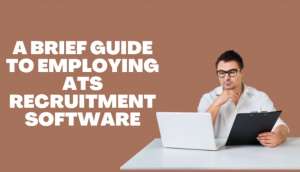I spent three years avoiding my bank account.
Every time I'd log in to check my balance, my chest would tighten. My thoughts would spiral. I'd close the app and pretend everything was fine, even though the anxiety followed me everywhere.
Turns out, I wasn't alone. Recent data shows that 43% of U.S. adults say money negatively affects their mental health, causing anxiety, stress, loss of sleep, and depression. Another survey found that 69% of Americans feel insecure about their finances, and nearly three in four say their financial situation impacts their mental wellbeing.
That number shocked me at first. Then I realized it made perfect sense.
Money Stress Isn't Just About Money
Here's what research has found: the way you perceive your financial situation matters as much or more than your actual financial reserves when it comes to your physical and mental health.
Think about that for a second. Two people with the same bank balance can have completely different stress levels based on how secure they feel.
Studies show that over 50% of Americans report feeling stressed or anxious about their finances three or more days per week. That constant low-level worry doesn't just stay in your head. It seeps into everything.
Financially stressed employees are five times more likely to be distracted at work and miss twice as many days. People dealing with money-related mental health issues are three times more likely to have paid a bill late. Adults with less than $5,000 in financial assets report over two times the odds of screening positive for depression and anxiety compared to adults with $100,000 or more.
The stress shows up in your body too. High blood pressure, heart problems, substance abuse, depression. Financial anxiety isn't a character flaw. It's a real health issue.
What Actually Helps
After talking to a therapist about my money anxiety, she asked me a simple question: "What would make you feel more secure?"
I expected her to suggest a budget app or a side hustle. Instead, she asked me to think about what security meant to me personally. For some people, that's a full emergency fund. For others, it's owning a home. For me, it was knowing that some of my savings existed outside the banking system.
That's when I started looking into physical assets.
Research suggests that people who can view financial setbacks as temporary rather than catastrophic tend to remain calmer and move through challenges better. Having something tangible helped me shift my mindset from "everything could disappear" to "I have a foundation."
Why Physical Assets Feel Different
There's a psychological component to holding something real. Numbers on a screen can vanish with a market crash or a banking crisis. A physical asset exists no matter what happens to your login credentials.
Precious metals have served this role for thousands of years. Gold provided stability during the 2008 financial crisis and reached record highs during the 2020 pandemic when stock markets crashed. The metal itself doesn't care about interest rates or election results.
I'm not suggesting anyone put all their money in gold bars and bury them in the backyard. That's not realistic or smart. But having even a small portion of your savings in something tangible can change how you feel about your financial situation.
Traditional advice suggests allocating 5-8% to gold and 10-15% to silver, though these are just guidelines that should match your personal circumstances.
Different Metals for Different People
Gold remains the most recognized option. It's stable, widely accepted, and has a proven track record of protecting wealth against inflation. If you want something that won't keep you up at night, gold works well as a foundation.
Silver offers a different approach. It's more affordable as an entry point, and it serves both industrial and monetary purposes. Silver is entering its fifth consecutive year of supply deficits, with demand from electronics, solar panels, and AI technologies creating additional pressure on markets due to the metal's exceptional electrical conductivity.
Platinum and palladium exist too, mainly for people interested in diversification. They're more volatile and tied to specific industries like automotive manufacturing, but they have their place for certain investors.
What I Actually Did
I started small. Really small. One silver coin from a local coin shop.
Holding it felt different than I expected. It wasn't about the monetary value. It was about taking action instead of just worrying. That one coin became two, then five. I added a small gold piece when I had extra savings.
My bank account didn't magically grow, but my anxiety decreased. I had something physical, something that existed outside the system I'd been so afraid of.
The research backs this up. Studies show that how people feel about their financial situation matters 20 times more than their actual bank balance. Perception-driven stress can spiral into serious health issues, while taking concrete steps toward security can break that cycle.
Small Steps Matter
You don't need a perfect financial plan to start feeling better about money. You need to take steps that align with what makes you feel secure.
For some people, that means building an emergency fund. For others, it's paying off debt. For me, it included adding physical assets to my savings strategy.
If you're in Texas and curious about precious metals, local coin shops can answer questions and let you see actual products before buying. Places like Waco Coin Buyers have been around long enough to have established reputations in their communities.
But the specific approach matters less than the act of taking control.
The Real Goal
Financial wellness isn't about accumulating the most wealth or making perfect investment decisions. It's about building a foundation that lets you live with less anxiety and more confidence.
Mental health professionals emphasize treating your body as something that needs care and management, not a dumping ground for emotional stress. That applies to financial stress too.
Your financial situation won't change overnight. But how you relate to it can shift much faster than you'd expect.
Sometimes the first step is just admitting that money stress is affecting your life. The second step is doing something about it, even if it's small. And the third step is giving yourself credit for taking action instead of just worrying.
Whatever path you choose, the goal is the same: less anxiety, more stability, and a sense that you have some control over your financial future.
That feeling is worth more than any investment return.
This article shares personal perspectives and general information. Consult with qualified professionals before making financial or health decisions.






